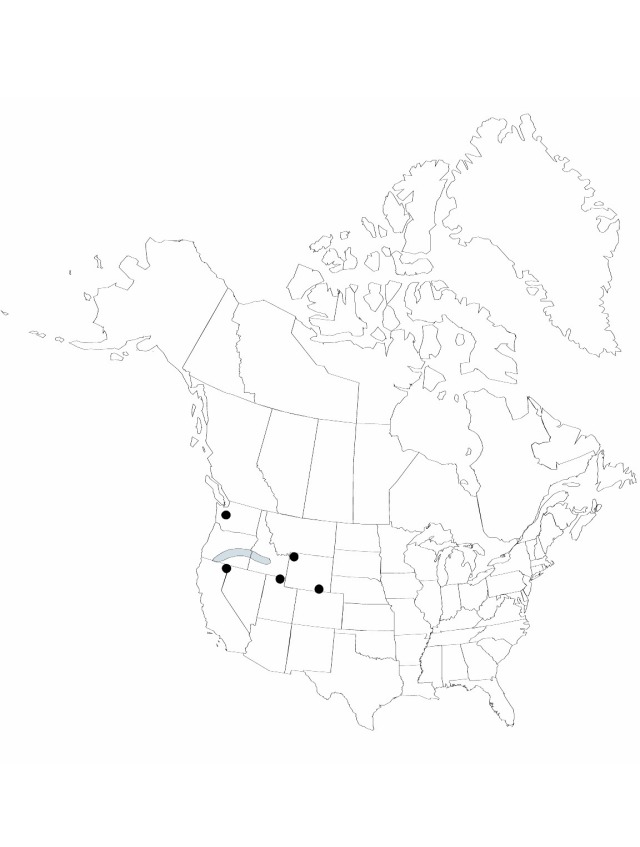familyPotamogetonaceae
genusPotamogeton
speciesPotamogeton foliosus
subspeciesPotamogeton foliosus subsp. fibrillosus
Potamogeton foliosus subsp. fibrillosus
Novon 6: 370. 1996.
Basionym: Potamogeton fibrillosus Mem. Amer. Acad. Arts, n. s. 17: 51, plate 28, figs. a–c, plate 32, plate 28, fig. 5, plate 32. 1932
Synonyms: Potamogeton foliosus var. fibrillosus (Fernald) R. R. Haynes & Reveal
Treatment appears in FNA Volume 22.
Revision as of 19:55, 16 December 2019 by FNA>Volume Importer
Stems: glands common, to 0.5 mm diam. Leaves: stipules brown or rarely white, fibrous, shredding at tip, veins in age remaining as fibers. Inflorescences: spikes interrupted. Fruits pale -green, 1.4–1.7 × 1.1–1.2 mm; keel less than or equal to 0.2 mm high; beak less than or equal to 0.2 mm. Chromosome number unknownnot available.
Phenology: Flowering and fruiting summer–fall.
Habitat: Warm waters of shallow lakes, springs, streams, and rivers
Elevation: 600–2700 m
Distribution

Calif., Idaho, Oreg., Utah, Wash., Wyo.
Discussion
Potammogeton foliosus subsp. fibrillosus is known from the warm waters of the northwestern United States. It differs from subsp. foliosus by the stipular tissue between the veins decomposing, leaving only strands formed by the fibrous veins. In addition, nodal glands are quite common.
Of conservation concern.
Selected References
None.
Lower Taxa
None.